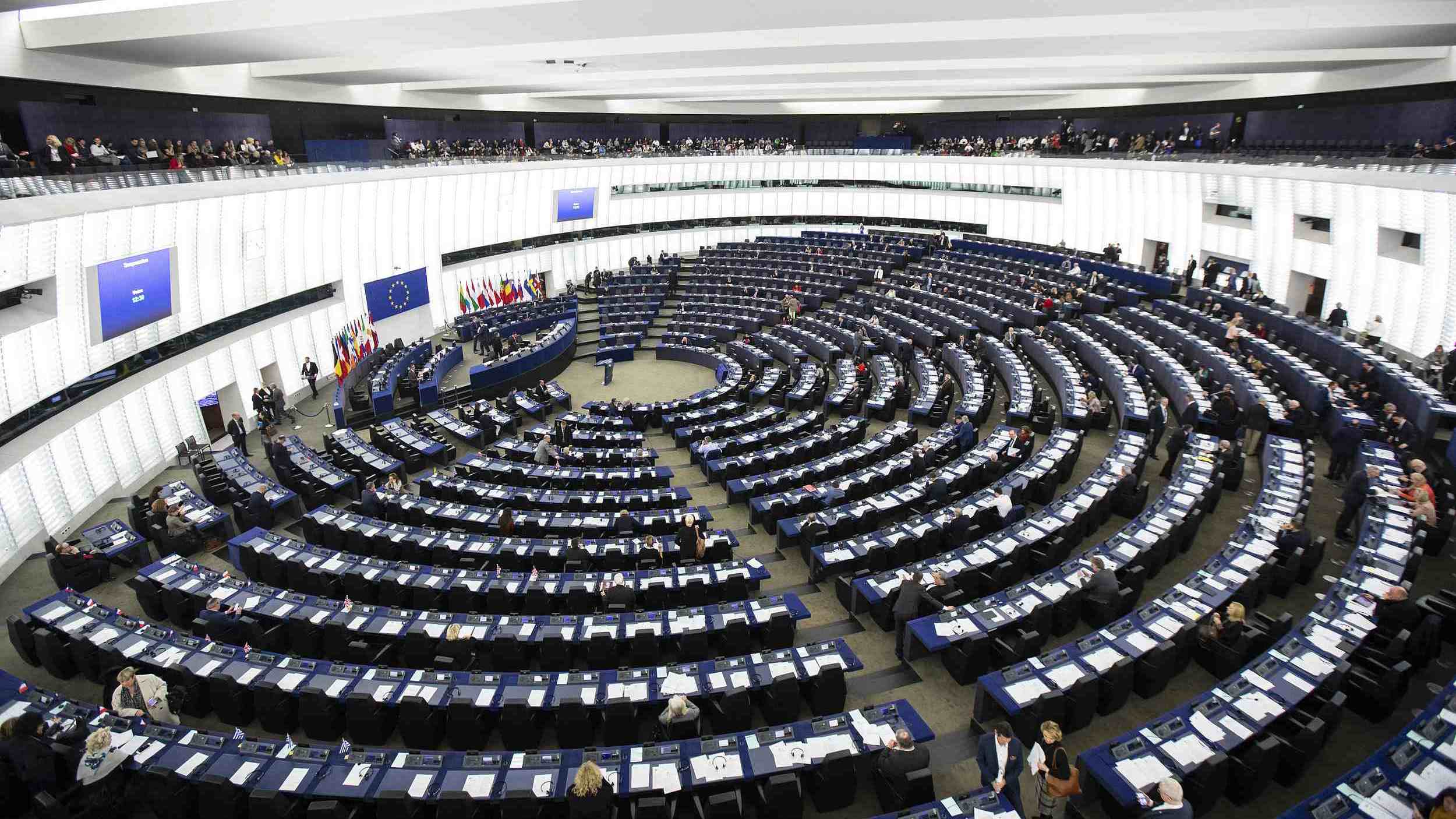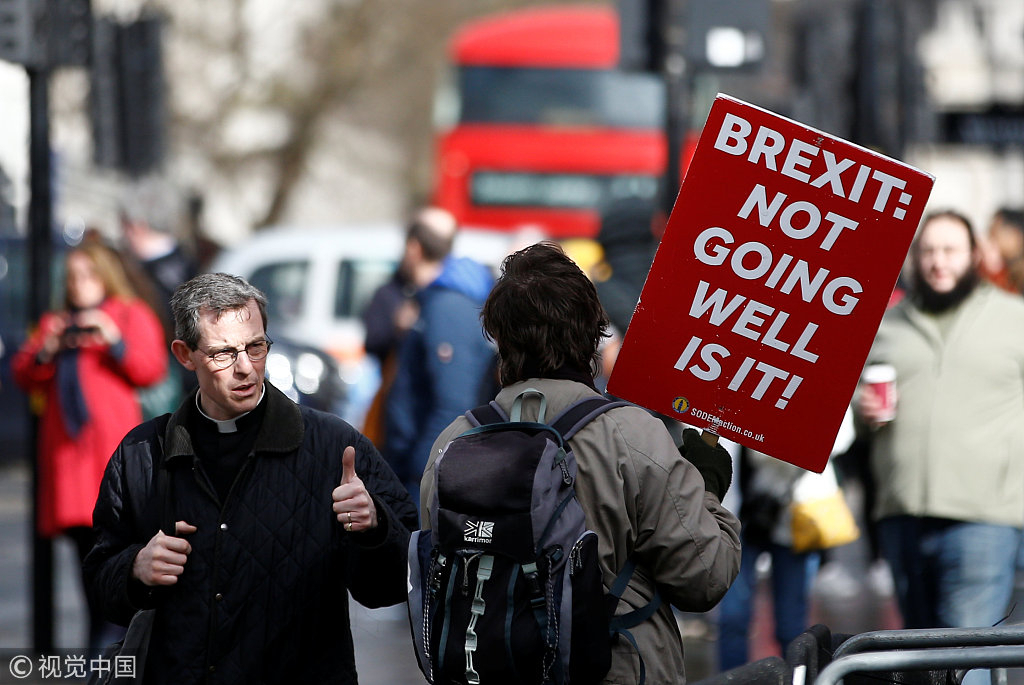
Opinion
10:25, 20-May-2019
What to watch in this week's European elections
Chris Deacon

Editor's Note: Chris Deacon is a postgraduate researcher in politics and international relations at the University of London and previously worked as an international commercial lawyer. The article reflects the author's opinion, and not necessarily the views of CGTN.
This week will see the 2019 iteration of one of the world's largest democratic exercises: the European Parliamentary elections. A total of 751 parliamentary seats will be up for grabs, representing over 500 million people from 28 European Union member states.
For outside observers, these elections can be somewhat confusing. As well as central EU concerns regarding the make-up of the European Parliament, we also have to consider domestic politics across each member state. Nevertheless, the following are some headline issues to look out for.
Voting and results timing
The first thing to keep in mind with these elections is the slightly protracted nature of the voting and results. Each member state has its own rules regarding election timing. For example, in the United Kingdom elections are generally always held on Thursdays, but other member states hold their own polls on different days.
This year, the UK and the Netherlands will vote on May 23, Ireland and the Czech Republic on May 24, four more member states will vote on May 25, before the vast majority finally vote on May 26. But as it could be unfair to announce the results of the early-voting member states before everyone across the EU has voted, no counting will begin until all polls are closed.
So, for example, even though the UK will vote on Thursday, vote-counting and results will not begin until Sunday night.
Moment of truth for the nationalists?

Nigel Farage is speaking at Leave Means Leave "Save Brexit" rally at the Queen Elizabeth II Conference Centre in London, Britain, December 14, 2018. /VCG Photo
Nigel Farage is speaking at Leave Means Leave "Save Brexit" rally at the Queen Elizabeth II Conference Centre in London, Britain, December 14, 2018. /VCG Photo
Many commentators have discussed the rise of nationalism and populism in democracies across the world over the past few years, and Europe has been no exception. The Brexit vote in the UK has been the most commonly cited example, but nationalist and far-right parties have been topping polls across Europe.
Results for more extreme parties are often heightened in the European elections, which voters commonly perceive as an apt moment for a protest vote, given that they do not see the European Parliament as holding much sway over their lives.
Some, however, have predicted that these right-wing parties may not do as well as expected. Revelations in Austria in the last few days – where the far-right FPO's corruption scandals have seen Chancellor Sebastian Kurz call for a dissolution of his coalition and snap elections – for example, could have a knock-on effect more broadly across the continent.
Britain's proxy second referendum
Many will also be watching the UK's results to see how well the newly-formed Brexit Party performs. With the governing Conservative Party and main opposition Labour Party barely contesting these elections, Nigel Farage's party is expected to top the polls.
At the same time, vocally anti-Brexit, pro-second referendum parties are also vying for the "Remain" vote. They have failed to heed calls to coalesce around a "single ticket" in this regard, however, so will split their target vote.
In the aftermath, the discourse on Brexit for the next few months could well be shaped by the aggregate of votes for each of these party groupings.

An anti-Brexit protester walks outside the Houses of Parliament in London, Britain, March 14, 2019. /VCG Photo
An anti-Brexit protester walks outside the Houses of Parliament in London, Britain, March 14, 2019. /VCG Photo
A Green surge?
Green parties across Europe also look likely to achieve their best result yet in these elections. With proposals for a "Green New Deal" becoming one of the most fashionable policies in progressive politics currently, and climate change protests occurring across the world, Green parties are receiving more attention than ever before.
Many progressive voters see these parties, supporting traditional left-wing values while also promoting a radical approach to environmental policy, as an antidote to the nationalist surge described above. It remains to be seen whether this greater awareness of Green issues will translate into solid results for their greatest proponents.
The new EU commissioner
Although less on the minds of the European electorate, these elections will also play the largest part in electing the next president of the European Commission – one of the most powerful roles in politics, currently held by Jean-Claude Juncker.
The most likely candidates are Manfred Weber of the center-right European People's Party, and Frans Timmermans of the center-left Socialists & Democrats. Whoever wins will have a major say over EU policy and the course of the bloc for the coming years.
(Cover Photo: MEPs attend a session in the European Parliament in Strasbourg, France, March 12, 2019. /VCG Photo)
(If you want to contribute and have specific expertise, please contact us at opinions@cgtn.com.)

SITEMAP
Copyright © 2018 CGTN. Beijing ICP prepared NO.16065310-3
Copyright © 2018 CGTN. Beijing ICP prepared NO.16065310-3